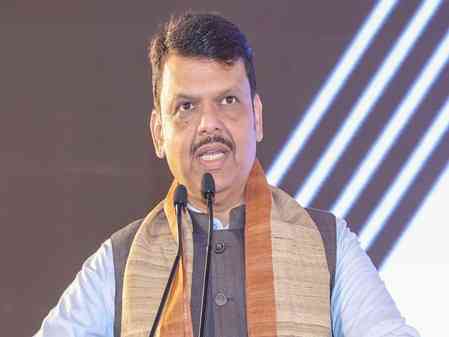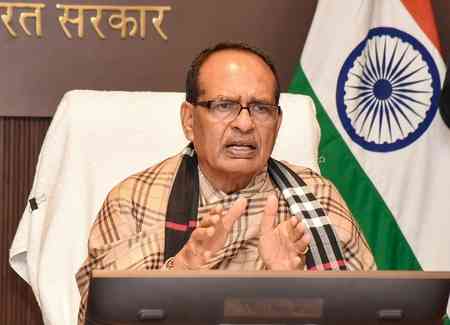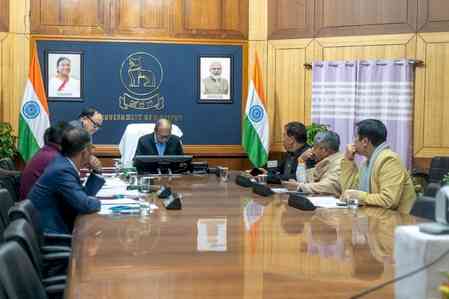Despite its Rs 15K cr budget, MCD has failed to clean up Delhi
The Municipal Corporation of Delhi has an annual budget of over Rs 15,000 crore for 250 wards but still trails behind cities like Indore which has a lower budget but ranks the top in cleanliness across the city.

SHEKHAR SINGH
New Delhi, Dec 11 (IANS) The Municipal Corporation of Delhi has an annual budget of over Rs 15,000 crore for 250 wards but still trails behind cities like Indore which has a lower budget but ranks the top in cleanliness across the city.
The Indore Municipal Corporation (IMC) has a fleet of 1,500 vehicles and a team of 11,000 safai workers (some employed by a private contractor). Of the Rs 5,000 crore annual budget of the IMC, around Rs 1,200 crore is allocated for sanitation. This includes salaries and other miscellaneous expenditure.
The IMC levies nominal user charges on the residents for door-to-door garbage collection. The charges range from Rs 60 per house per month in the slums to Rs 90 per house per month in middle-class localities to Rs 150 per house per month in posh areas.
The IMC earned approximately Rs 240 crore in the last financial year from user charges.
Meanwhile, the Brihanmumbai Municipal Corporation (BMC) or the Mumbai civic body, the country's richest civic body, has a budget of Rs 45,949.21 crore for 2022-23, 17 per cent more than its budget for 2021-22. It has used various techniques to deal with the garbage and sanitation issues. In the national capital, however, the issue of sanitation that comes under the MCD, has surfaced at regular intervals even before the civic elections in Delhi as despite a sizable amount sanctioned for this sector in the financial year 2022-23, the situation on the ground has remained grim for years.
The allocation for sanitation stands at Rs 4,153.28 crore,
which is 27.19 per cent of the total budget, while Rs 2,632.78 crore has been sanctioned for education in the financial year 2022-2023. However, the civic body has failed to ensure basic amenities including sanitation and primary education in the national capital.
The main source of income for the MCD is the property tax besides advertising revenue, toll tax and fees from car
parking and from mobile phone towers.
Property tax remains one of the main sources of revenue for the MCD and most of it is collected from South Delhi. The total property tax collection for 2021-22 was Rs 2,032 crore from around 11.50 lakh properties.
Despite the allocation of 27.19 per cent for sanitation measures from its budget, there have been several instances when the sanitation workers have gone on strike due to either a delay in their salaries or the non-payment of their dues.
In June this year, hundreds of sanitation workers had gathered outside the MCD headquarters with demands such as retention of temporary workers, end of delay in salary payment, housing for workers, hiring of new workers, distribution of bonus, among others.
In October, several sanitation workers under the MCD, who were on an indefinite strike over the demand of regularising their services, called off the protest after reaching an agreement with the civic body officials.
Over 10,000 sanitation workers -- who are working on a contractual and permanent basis -- were part of the indefinite strike. The salary of a temporary worker is Rs 12,000 per month.
Among the 60,000 sanitation workers in the MCD, more than 30,000 workers have been working on a temporary basis since 1998, as per sources.
The workers on strike had refused to collect waste and sweep the streets in various parts of the city saying that the MCD had
given them "empty promises for over 20 years".
The erstwhile three civic bodies -- North, East and South Delhi Municipal Corporations -- were reunified as the Municipal Corporation of Delhi on May 22 with IAS officers Ashwani Kumar and Gyanesh Bharti assuming charge as the new municipality's special officer and commissioner, respectively.
After the unification and conclusion of the delimitation exercise mandated by Parliament, the number of wards in the MCD has come down by 22. The unification process has also led to an increase in taxes for the residents of East and North Delhi, where the rates have now been brought at par with South Delhi.
The process has led to a steep hike in taxes and levies such as for trade licenses, health licenses, storage fee and property tax.



 IANS
IANS 










